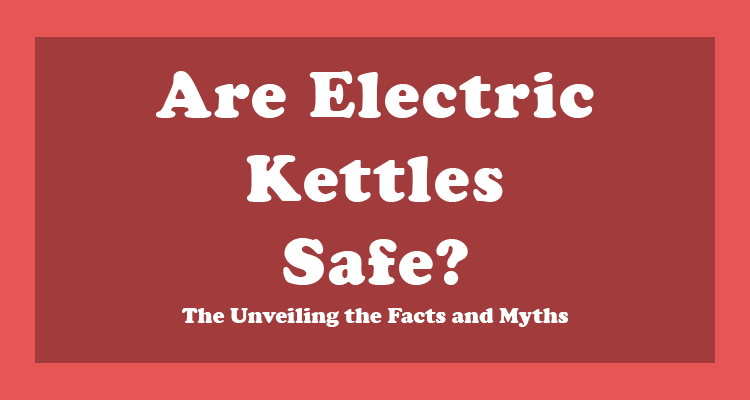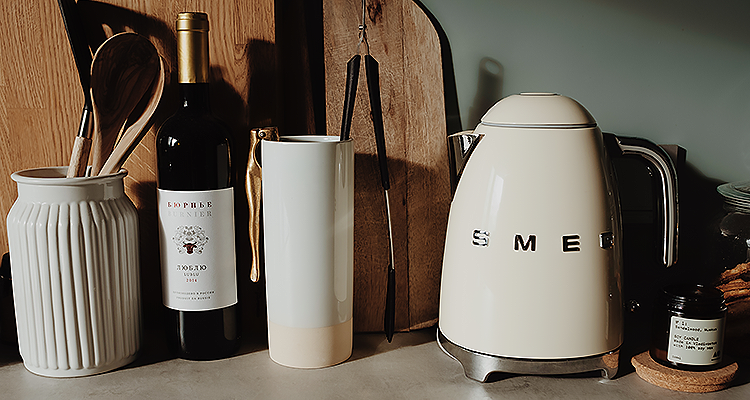
In today’s fast-paced world, convenience and efficiency have become paramount. Electric kettles have emerged as a popular kitchen appliance, providing quick and hassle-free water boiling for various purposes. However, with convenience comes questions about safety. Are electric kettles genuinely safe to use? This article will delve into electric kettles, examining their design, functionality, and potential risks and dispelling any safety myths.
Introduction
Electric kettles have revolutionized how we heat water, making it quicker and more efficient. Their sleek designs and user-friendly features have become a staple in many households. But the burning question remains: Are electric kettles safe to use regularly?
How Electric Kettles Work
Electric kettles operate on a simple principle: convert electrical energy into heat energy to boil water. A heating element, usually made of stainless steel or other heat-resistant materials, is immersed in the water. Upon activation, the heating element swiftly increases in temperature, rapidly boiling the water within the kettle.
Materials Used in Electric Kettles
Safety begins with the materials used in an electric kettle’s construction. High-quality kettles are typically made from stainless steel, glass, or BPA-free plastic. These materials are chosen for their heat resistance and durability, ensuring they do not release harmful chemicals into the water.
Automatic Shut-Off Feature
One of the critical safety features of modern electric kettles is the automatic shut-off function. This mechanism turns off the kettle once the water reaches its boiling point. It prevents over-boiling, saves energy, and reduces the risk of accidents.
Temperature Regulation
Advanced electric kettles offer temperature control settings, allowing users to choose the desired heat level for different beverages. This feature adds another layer of safety by preventing water from reaching excessively high temperatures that could lead to burns or scalds.

Electric Kettle vs. Stovetop Kettle: Safety Comparison
Comparatively, electric kettles tend to be safer than traditional stovetop kettles. Stovetop kettles require an open flame, which poses a fire hazard, especially in households with children. Electric kettles eliminate this risk by relying on electricity for heating.
Common Myths About Electric Kettle Safety
Myth 1: Electric Kettles Can Explode
Fact: While it’s true that electric kettles make noise when heating water, the idea of them exploding is unfounded. Modern kettles are equipped with safety features that prevent pressure buildup.
Myth 2: Electric Shocks from Kettles
Fact: Electric kettles are designed with insulation and grounding to prevent electric shocks. Proper usage and regular maintenance minimize any risk of surprises.
Myth 3: Plastic Kettles Are Unsafe
Fact: Many plastic electric kettles are now made from BPA-free materials, ensuring they are safe for boiling water. However, stainless steel and glass options are also available for plastic concerns.
Potential Risks and Precautions
While electric kettles are generally safe, there are a few precautions to keep in mind:
- Limescale Buildup: Regular descaling is essential to prevent limescale accumulation, which could affect the kettle’s efficiency.
- Steam Burns: Steam produced during boiling can cause burns. Handle the kettle with care and direct the steam away from yourself.
- Hot Exterior: The kettle’s exterior becomes hot during use. Avoid touching it directly to prevent burns.
Maintenance and Cleaning Guidelines
To ensure the longevity of your electric kettle and maintain its safety, follow these guidelines:
- Regularly descale the kettle to prevent mineral buildup.
- Clean the exterior with a soapy cloth or sponge to remove any residue.
- Inspect the power cord and plug for any signs of damage.
Choosing a Reliable Electric Kettle
When selecting an electric kettle, consider these factors:
- Materials: Opt for stainless steel, glass, or BPA-free plastic.
- Automatic Shut-Off: Ensure the kettle has this safety feature.
- Wattage: Higher wattage heats water faster but may consume more energy.
Benefits of Using Electric Kettles
Let’s know some advantages that’s why you switch to an electric kettle:
Electric kettles offer several advantages
- Time-saving: Boiling water is significantly faster than traditional methods.
- Energy-efficient: Automatic shut-off and precise temperature control save energy.
- Convenience: Easy to use and suitable for various beverages.
Environmental Impact
Electric kettles have a relatively low environmental impact compared to stovetop kettles. Their energy-efficient design and quick boiling times contribute to reduced energy consumption.
Conclusion
Are Electric Kettles Safe? Yeah, Absolutely electric kettles are a safe and convenient way to boil water for your daily needs. They have become a reliable kitchen companion with their modern features, such as automatic shut-off and temperature control. Following proper usage and maintenance guidelines allows you to enjoy the benefits of electric kettles without compromising safety.
Let’s read another blog about the coffee grinder vs blender complete comparison blog.
FAQs About Electric Kettle
It’s best to empty the kettle after each use to prevent limescale buildup and maintain hygiene.
Both options are safe, but stainless steel and glass are more durable and heat-resistant.
Electric kettles are designed for efficiency, so their energy consumption is relatively low.
Billing only water in an electric kettle is recommended to prevent residue buildup and potential damage.
Some electric kettles offer variable voltage settings for international use but are rare.
Leave a Reply